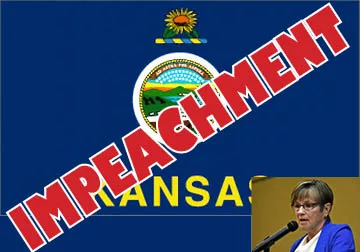Does politics have room for a contrarian view on daycare?
And I say politics, in general, because both Republicans and Democrats seem to be falling over themselves trying to find ways to create more child care slots across Kansas.
I suppose I understand it. Young families want it. Employers need it. The economy demands it. The mantra about the childcare crisis has been set on repeat. Why should anyone question it?
Without daycare, there would be young and able-bodied individuals who wouldn’t go to work. And if they can’t work, they can’t make money. And if they’re not making money, they have nothing to spend. If consumers have no money to spend, how are businesses supposed to thrive?
Without everyone working, we couldn’t achieve year-to-year economic growth. Our Gross Domestic Product would decline. What would the world be like if the United States of America wasn’t the economic engine of the world? Would we suddenly have to try claiming we are gaining ground on some kind of worldwide happiness index or something to make up for it?
But maybe there are a few of us who don’t feel like our lives need to be cogs in an economic machine.
I often try to use Dr. Stephen Covey’s framework “Begin with the end in mind” to review what I’ve prioritized in life.
If you were on your deathbed, reflecting on how you’ve spent your time on this earth, would you have any regrets? Any missed aspirations? Apply that thought process to this topic.
Is anyone really laying on their deathbeds regretting the lack of daycare opportunities, wishing they could’ve contracted out more of their time with their children to some daycare provider so they could’ve worked more? Or do they wish they would’ve spent way more time with children, spouse and family?
It’s not like hiring outsiders to help raise our young children is engrained in the human condition. This huge cultural shift, where there is practically an expectation that kids should be raised by a hired service, even from six weeks old, has happened within our lifetimes. In a historical context, the use of childcare services by the average nuclear family is brand new.
So with the current dominance of this way of life, is this now an aspiration for American culture? Like, have we really made it to the forefront of civilization if we can get 95% of children into full-day daycare five days a week from six weeks old until they go to full-day kindergarten?
If so, where does this lead in the next 50-100 years? Assimilation of boarding schools into our public education system so we can just contract out the raising of our children from 6 weeks old to 18 years old? We make em, then let the government take em? Maybe our kids will be raised by robots and AI so we’ll all have more time to mindlessly scroll on our smartphones.
I don’t know. Doesn’t sound ideal. But like I said, I’m just one contrarian voice.
My wife and I made an intentional decision to do with less when we were young, so we could allow her to stay at home with our kids instead of working and putting the kids in daycare. We suffered financially. We were unable to do things that some of our friends did, like take regular (or nice) vacations, or contribute to our kids’ college funds, or go out to eat at restaurants (at times, not even McDonald’s was within our budget). There were times it felt generally horrible. But you know what? We wouldn’t change it for the world. We felt like it was the right thing to do. These were our children, and who better to raise them than us?
Shouldn’t parents raise their kids? Shouldn’t that be the goal? So why are we putting so much focus on increasing childcare slots, rather than a focus on generating the kind of economy that would allow one parent to work while the other stays home to raise the kids?
Dan Thalmann is the owner/publisher of the Washington County News and is a Past President of the Kansas Press Association. He has won numerous journalism awards in many categories over the years, including multiple awards as the best mid-sized weekly newspaper in Kansas.





